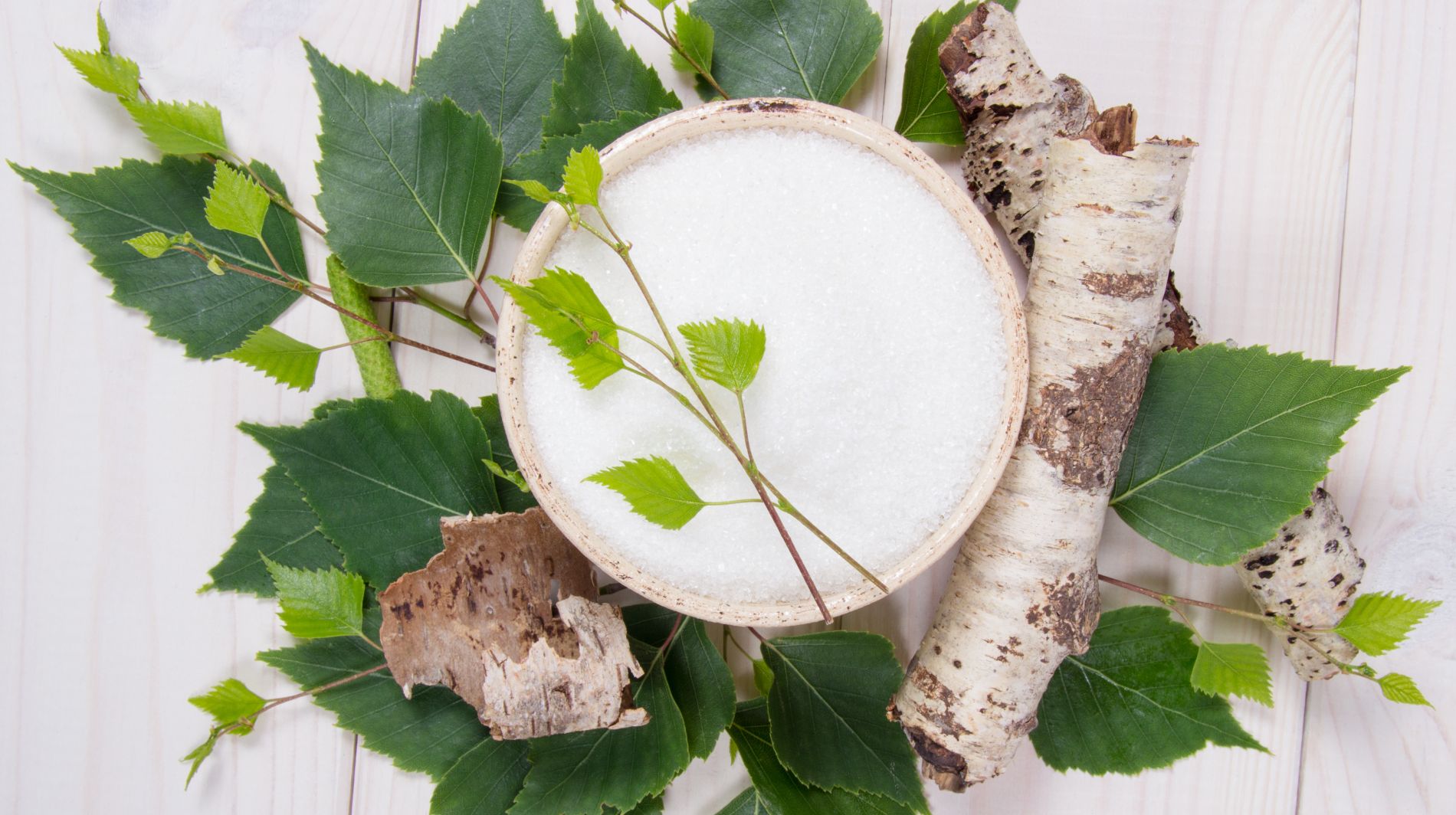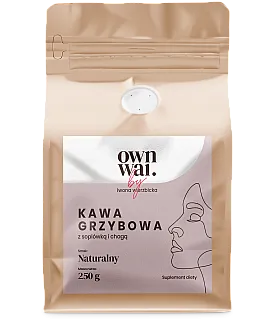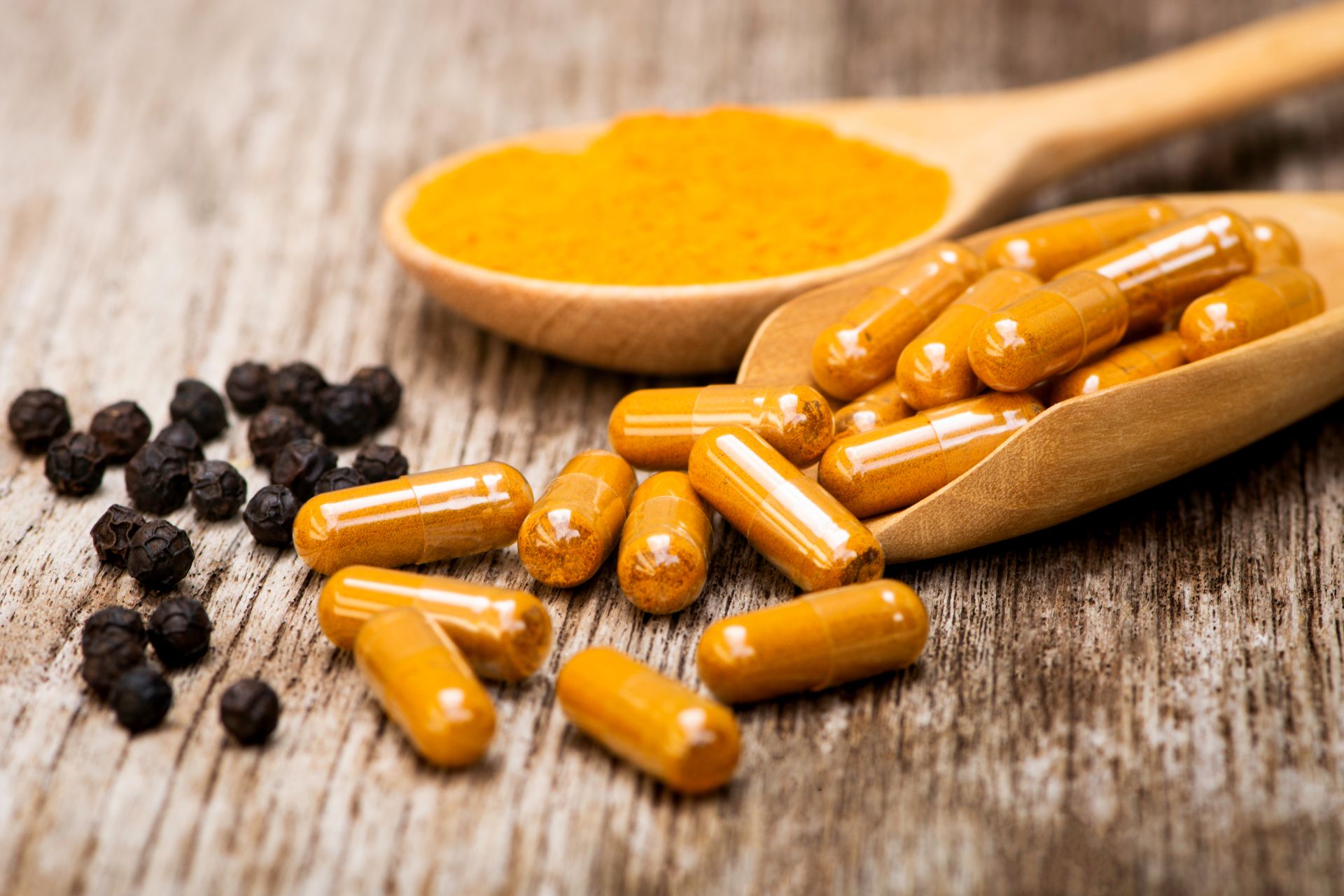Xylitol - a good substitute for white sugar?

Xylitol is commonly known as birch sugar, belongs to the group of sweeteners of natural origin and is a good substitute for white sugar. Xylitol is obtained from birch trees and has the same sweetness as sucrose (table sugar), but its energy value is almost half as much. Xylitol can also be derived from corn or produced with yeast.
- Xylitol - how many calories does it have?
- Xylitol - properties
- Xylitol - uses
- Xylitol - is it safe for health?
- Xylitol - where to buy and how to store?
Xylitol - how many calories does it have?
The energy value of xylitol is exactly 2.4 kcal/1g, while that of white sugar is 4 kcal/1g. This means that xylitol is almost twice as low in calories as traditional table sugar and, in addition, does not contribute to a significant increase in blood glucose levels due to its low glycemic index (GI = 7). One teaspoon of xylitol (5 g) provides 12 kcal, while one teaspoon (5 g) of white sugar provides as much as 20 kcal. The lower calorie content of xylitol is due to the fact that it is only half absorbed in the digestive tract, with the remaining 50% being fermented in the large intestine. Xylitol acts as a good substitute for white sugar in the diet of all people who care not only about reducing excessive body fat and/or maintaining a healthy body weight in the long term, but also about changing their eating habits to more health-promoting ones(more about calorie counting).
Xylitol - properties
Current research shows that regular consumption of xylitol can reduce the risk of developing tooth decay by 17%. It is believed that the effective dose of xylitol in preventing the onset of tooth decay is 6 to 10 g per day, and it is recommended to divide it into 3-5 smaller portions throughout the day. It turns out that xylitol is not metabolized by the oral bacterial flora, so it is not used as a medium for the production of acids that contribute to the appearance of caries and periodontitis. Consuming xylitol instead of white sugar can reduce the number of cariogenic bacteria Streptococcus mutans, the presence of which is associated with the development of caries. Besides, the results of studies in experimental animal models have shown that xylitol can increase intestinal absorption of calcium and mineral content in bones, which protects against osteoporotic changes resulting from aging. It has also been suggested that xylitol boosts collagen production and may strengthen the immune system. The main health benefits of regular use of xylitol as a good substitute for white sugar are related to its antibacterial and antifungal properties.
Xylitol - uses
Xylitol exhibits sweetness comparable to white table sugar and has the highest sweetness of all polyols (hydroxyl alcohols). Among the food products available on the market, which most often contain xylitol in their composition, the following are mentioned first of all: candies, lollipops, fruit jellies, chewing gums, jams, preserves, chocolates, roasted almonds and nut and almond creams. You can also find toothpastes and mouthwashes that contain xylitol in pharmacies, drugstores and health food stores. At home, xylitol is most often used in place of white sugar to sweeten coffee, tea and other hot drinks , as well as in baked goods, puddings, puddings, jams and other sweet snacks. Xylitol is characterized by high stability at high temperatures, so it can be successfully added to cakes without fear of losing its sweet taste. Xylitol should be used as a substitute for white sugar by patients with obesity, diabetes and insulin resistance.
Xylitol - is it safe for health?
Xylitol is safe for human health and can be consumed by young children and pregnant women. Xylitol has been shown to have no harmful effects on the fetus or carcinogenic properties. In addition, no serious side effects have been reported from consuming large amounts of xylitol, so no maximum daily intake limit has been established for xylitol. However, it is recommended not to exceed xylitol's daily intake of 15-20 g, as too much xylitol intake can contribute to bloating, abdominal pain, nausea and diarrhea in some people. It is also worth mentioning that xylitol and any products containing xylitol in their composition should not be given to dogs, as they are dangerous to their health and can even lead to their death.
Xylitol - where to buy and how to store?
Due to its hygroscopic properties (ability to bind water), xylitol should be stored in airtight containers (preferably glass) and in a dry place without constant sunlight. The price of xylitol usually ranges from £30 to £40 for a one-kilogram package. Xylitol is now widely available at retail and can increasingly be purchased not only in large supermarkets, but also in smaller grocery discount stores, pharmacies, drugstores, herbal and medical stores, health food stores and online stores.
Sources:
- Janakiram C, Deepan Kumar CV, et al: Xylitol in preventing dental caries: A systematic review and meta-analyses. J Nat Sci Biol Med. 2017 Jan-Jun;8(1):16-21.
- Riley P, Moore D, Ahmed F, et al: Xylitol-containing products for preventing dental caries in children and adults. Cochrane Database Syst Rev. 2015 Mar 26;2015(3):CD010743.
- Marghalani AA, Guinto E, Phan M, et al: Effectiveness of Xylitol in Reducing Dental Caries in Children. Pediatr Dent. 2017 Mar 15;39(2):103-110.
- Chattopadhyay S, Raychaudhuri U, Chakraborty R.: Artificial sweeteners - a review. J Food Sci Technol. 2014 Apr;51(4):611-21.
- Mooradian AD, Smith M, Tokuda M.: The role of artificial and natural sweeteners in reducing the consumption of table sugar: A narrative review. Clin Nutr ESPEN. 2017 Apr;18:1-8.



 ⮜ Previous article
⮜ Previous article
Curcumin and piperine - do they have anything in common?
 Next article ⮞
Next article ⮞